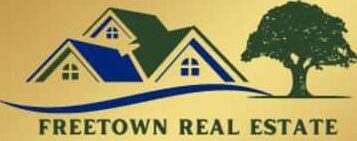Introduction
In the dynamic and competitive world of real estate, learning from your competitors is an essential part of staying ahead in the game. While competition may initially seem like a threat, it can also be a valuable source of knowledge and insight. By observing what your competitors are doing well and where they might be falling short, you can adapt and refine your own strategies to achieve success in the real estate industry. In this guide, we will explore ten crucial lessons that your competitors can teach you about real estate.
- Market Research and Analysis
Competitors can provide valuable insights into market research and analysis. By examining their strategies, you can gain a better understanding of the markets they are targeting, the types of properties they are investing in, and the trends they are capitalizing on. This knowledge can help you identify untapped opportunities or adjust your own market focus to stay competitive.
Lesson: Conduct thorough market research to stay informed about market trends, local dynamics, and potential opportunities for growth.
- Pricing Strategies
Observing your competitors’ pricing strategies can help you refine your own approach to pricing properties. Are they pricing properties aggressively to sell quickly, or are they emphasizing premium features and pricing higher? By analyzing their pricing decisions and comparing them to market conditions, you can make informed decisions about how to price your properties competitively.
Lesson: Develop a pricing strategy that aligns with market conditions, property features, and your overall business goals.
- Marketing and Advertising
Your competitors’ marketing and advertising efforts can offer valuable lessons in how to effectively reach and engage with potential clients. Are they using digital marketing, social media, or traditional advertising channels? Study their messaging, branding, and engagement strategies to improve your own marketing efforts.
Lesson: Invest in a comprehensive marketing strategy that leverages both digital and traditional channels to reach your target audience effectively.
- Customer Relationship Management
Understanding how your competitors manage their customer relationships can help you improve your own client retention and satisfaction. Are they responsive to client inquiries? Do they provide excellent customer service during and after transactions? By focusing on customer relationship management, you can build trust and loyalty, ultimately leading to repeat business and referrals.
Lesson: Prioritize excellent customer service and communication to build strong, lasting relationships with clients.
- Technology and Tools
The real estate industry is continually evolving, with technology playing a significant role in streamlining processes and improving efficiency. Analyze the tools and technology your competitors are using. Are they utilizing customer relationship management (CRM) software, virtual tours, or AI-driven analytics? Learning from their tech stack can help you stay competitive in a rapidly changing environment.
Lesson: Embrace technology and tools that enhance your workflow, automate tasks, and provide a better client experience.
- Networking and Partnerships
Successful real estate professionals often build extensive networks and partnerships that contribute to their success. Observe how your competitors network within the industry, form partnerships with other professionals (e.g., real estate agents, lenders, contractors), and leverage these connections to access resources, referrals, and opportunities.
Lesson: Cultivate a robust network and seek out partnerships that can enhance your capabilities and expand your reach.
- Property Management and Maintenance
For those involved in property investment or property management, competitors can offer valuable lessons in property maintenance and management practices. Analyze how they handle property inspections, maintenance scheduling, tenant relationships, and cost management. Adopting best practices in property management can lead to improved tenant satisfaction and property performance.
Lesson: Implement efficient property management processes to ensure the long-term success of your real estate investments.
- Negotiation and Deal-Making
Effective negotiation skills are a cornerstone of success in real estate transactions. Your competitors can provide insights into negotiation tactics, strategies for handling objections, and methods for closing deals successfully. Study their approaches and adapt them to your own negotiation style.
Lesson: Invest in improving your negotiation skills to secure favorable deals and build trust with clients.

- Adaptability and Innovation
The real estate industry is subject to constant change, driven by shifts in market conditions, consumer preferences, and technology advancements. Observing how your competitors adapt to these changes and embrace innovation can inspire you to evolve your own strategies. Be open to adopting new approaches, exploring innovative technologies, and staying ahead of industry trends.
Lesson: Embrace adaptability and innovation as core principles to remain competitive in a rapidly evolving market.
- Ethical Practices and Integrity
While competition can be fierce, maintaining ethical practices and integrity is essential in the real estate industry. Your competitors can serve as examples of ethical behavior or, conversely, cautionary tales of unethical practices. Always prioritize transparency, honesty, and ethical conduct in your dealings with clients and partners.
Lesson: Uphold high ethical standards to build a reputation for trustworthiness and integrity in the real estate industry.
Conclusion
In the world of real estate, your competitors are not just rivals; they are also valuable sources of knowledge and inspiration. By studying their strategies, behaviors, and successes, you can uncover valuable lessons that can help you excel in the industry. Whether it’s market research, pricing strategies, customer relationship management, or embracing innovation, your competitors can teach you a great deal about what works and what doesn’t in the complex and ever-evolving world of real estate. Ultimately, the key is to remain open to learning and adapting, continuously improving your own practices to stay competitive and successful in the real estate arena.














